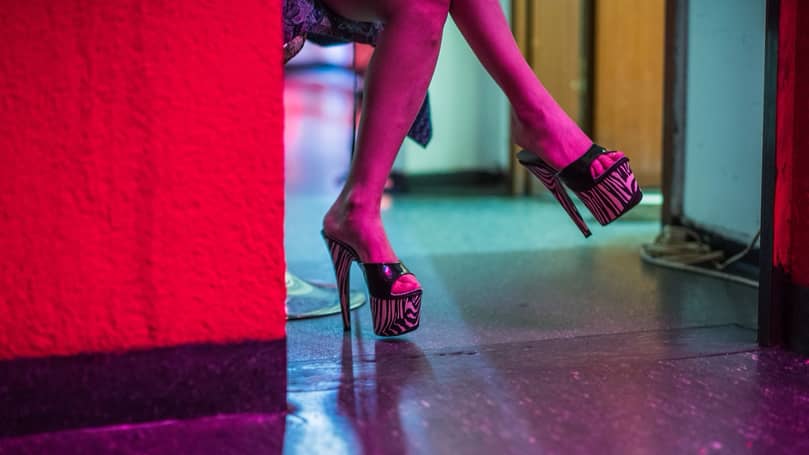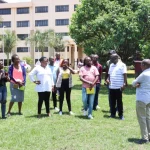At around 10pm, activities in Narok town wind down for the night. But for Betty (not her real name) this is the hour she reports for duty.
At only 17, Betty works as a commercial sex worker. This dingy building is where she plies her craft. She rents a room here for Ksh.600 and entertain their clients from here.
The pathway to her room is teeming with scores of underage girls, some haggling with clients while others patiently wait for clients to come.
In Betty’s room, her tools of trade are neatly laid out; there are packets of condoms and a HIV self testing kit. But both are sometimes not utilized as some clients don’t like using protection. She instead charges a higher rate than normal, because of the risk she’s taking.
“Hii kazi usipojichunga unaeza pata ugonjwa. Saa ingine mtu ako na intention ya kupasua CD usipokua strong unaeza patina na mtu mbaya,” she says.
Betty has two children for whom she works overtime to make ends meet. And to make it through day and night shifts, she has resorted to taking cannabis sativa, also known as ‘weed’, to be able to stay awake.
“Pombe na sigara sikunywangi lakini kuchana nachananga once kwa wiki. Unachana tu ndio usilale saa ile unataka kukesha,” she says.
In this same building we met ‘Shemimah’, a 19 year old who has been in the business for 2 years. She dropped out of school during the pandemic in 2021 and was introduced to the business by a friend.
She says on average, she receives between 10 and 20 clients in a day and on a good day she takes home around 4000 shillings. She however says, competition here is cut throat
“Kuna watu wanapigananga. Yule mwenye amewekelea huyu ni customer wake hawezi acha Lakini mimi najua Mungu ndio analetanga kila kitu. Hata customer wangu akienda kwa mwingine siezi sikia mbaya juu najua hata huyo mwenzangu anatafutia watoto,” Shemimah says.
Both Shemimah and Betty feel trapped in this lifestyle and desperately want to quit. They hope to save enough money to enable them to quit sex work and start businesses that they are not ashamed of.
However, for the time being as they continue with sex work, they contend with the ever present risk of contracting HIV. Their biggest challenge and that of many other sex workers in this establishment is securing a sufficient supply of condoms.
“NYS walikua wanatupea condoms na wakaacha waksema hakuna. Sasa kwa wiki tunapata kama 12 or 15 sasa inabidi tuingie kwa mfungo tujinunulie. Hizi za serikali m tu akipata kupitia mlango ya nyuma mtu anatuuzia mia tano,” Shemimah says.
Bishop John Ole Mpurkoi of the Pentecostal Assemblies of God church says “Watoto wengi na ni watoto wetu wanajihusisha na mabo ya kujiuza na kufanya kazi ya kuuza miili yao, lakini wanaharibu maisha yao.”
According to the 2022 KDHS report, The percentage of women age 15–19 who have ever been pregnant are highest in Samburu (50%), West Pokot (36%), Marsabit (29%), Narok (28%), Meru (24%), Homa Bay (23%), Migori (23%), Kajiado (22%), Siaya (21%), and Baringo (20%) and lowest in Nyeri and Nyandarua (5% each).
The Narok county government however says that the numbers are not as high as they were a year ago.
Antony Sentura, the Narok Health CEC, says “We are heading now in the right direction; this can be attributed to joint efforts between a numbers of ministries. The advocacy we’ve been doing has paid off.”
Experts warn that unintended teenage pregnancies in Narok and around the country are a major challenge for the socio-economic development of adolescent girls because they deny them the opportunity to further their education while robbing them their future potential in life.



